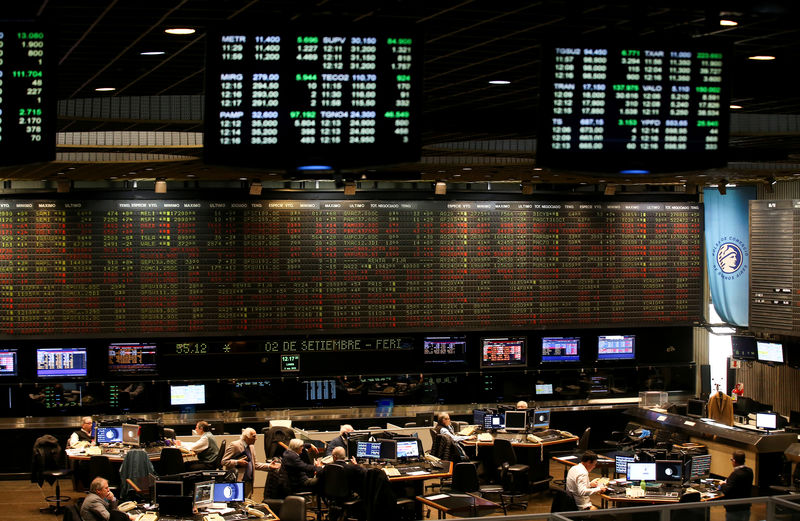By Eliana Raszewski and Rodrigo Campos
BUENOS AIRES/NEW YORK (Reuters) - Argentina's stocks, which crashed last month to multi-year lows, are starting to lure in hardy investors tempted by bargain basement prices, even as the country teeters on the brink of default ahead of a general election next month.
The country's main stock index lost almost half its value in the weeks after a shock Aug. 11 primary election defeat dealt a crushing blow to market-friendly conservative President Mauricio Macri and also roiled the country's debt market and peso currency.
The S&P Merval Index (MERV) has since steadied, though it remains down by over a third, which bankers and brokers said was starting to attract investors hopeful that the environment would improve and valuations recover.
"We're gradually starting to see more inquiries from foreign investors," Christian Reos, Buenos Aires-based research manager at brokerage Allaria, told Reuters.
"The valuations of companies don't reflect their reality right now. Today they are at high risk because Argentine assets are very volatile, but looking at things in the medium term it's an opportunity to buy."
The big question on investors' minds is what direction the country will move as the Oct. 27 presidential vote approaches. Macri was defeated by a landslide in the primaries by moderate, left-leaning Peronist Alberto Fernandez.
The result, which caught pollsters and politicians by surprise, hammered markets as investors feared Fernandez could usher in protectionist policies favored by his running mate, populist ex-President Cristina Fernandez de Kirchner.
(Graphic: Argentina's stocks: time to buy? png, https://fingfx.thomsonreuters.com/gfx/editorcharts/ARGENTINA-ECONOMY-STOCKS/0H001QX628CC/eikon.png)
POLITICAL WINDS
Luiz Ribeiro, head of Latin American operations at asset manager DWS, which held onto its American Depositary Receipts (ADRs) in Argentina through the market plunge, said, however, he saw Fernandez taking a more pragmatic approach.
"We see markets pricing in the worst case scenario, which we do not see as the most likely," he explained, referring to the likelihood a Fernández government would be more moderate than some investors currently expect. "At the current prices we are not going to sell. We just need more signals from Alberto (Fernández) that he is really going in that direction and how he is going to get there, so that we can actually buy," he added.
Ribeiro said energy and financial companies could attract an initial wave of investment.
That could include Grupo Financiero Galicia (BA:GGAL) and oil company YPF (BA:YPFD), which is spearheading development in Argentina's huge Vaca Muerta shale formation.
(Graphic: Argentina ADR performance, https://fingfx.thomsonreuters.com/gfx/mkt/12/6003/5937/ArgMSCI.png)
TOLERANCE FOR RISK
Kathryn Rooney Vera, head of analysis and strategy for emerging markets at Miami-based securities brokerage Bulltick LLC, said U.S. clients had sought her advice on investing in Argentine stocks after the crash, highlighting the potential of Vaca Muerta as one of its attractions.
"For speculative investors willing to sit on something with value and see potential, it's an interesting time to look at the banking and energy sectors," Vera told Reuters, though she warned these were bets for people with a high tolerance for risk.
Juan Pablo Fuentes, economist at Moody's Analytics in Pennsylvania, added that investing in Argentine shares remained a gamble due to uncertainty about the economic policies Fernández will take if elected.

"As much as (companies) have a healthy business plan and low debt levels, in the end the performance of companies will depend on the macroeconomic environment," he said. "If that deteriorates, there are no firms - however healthy they may be - that they will be saved from the situation."